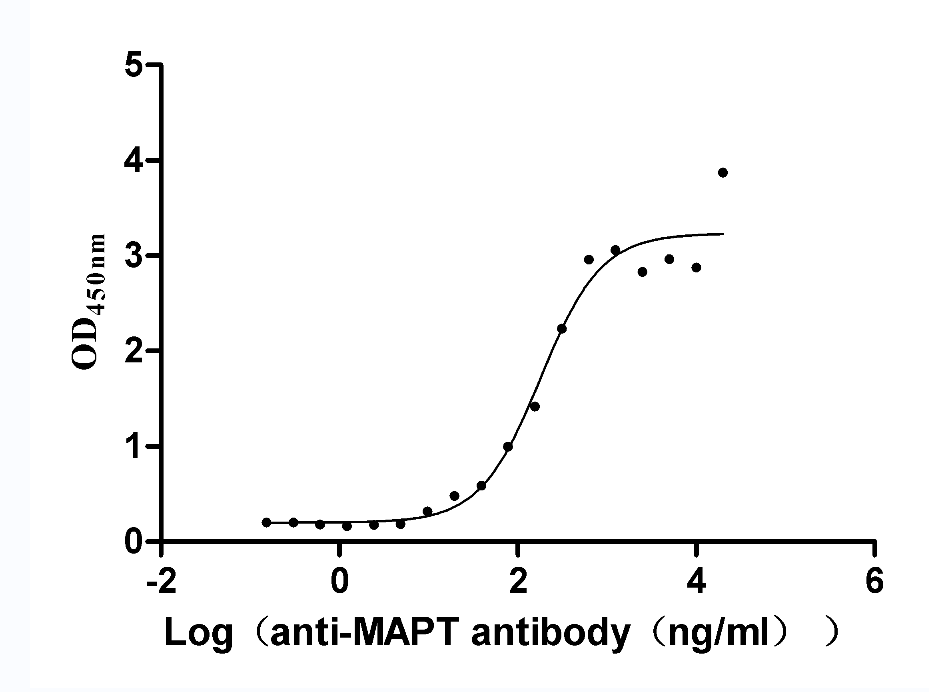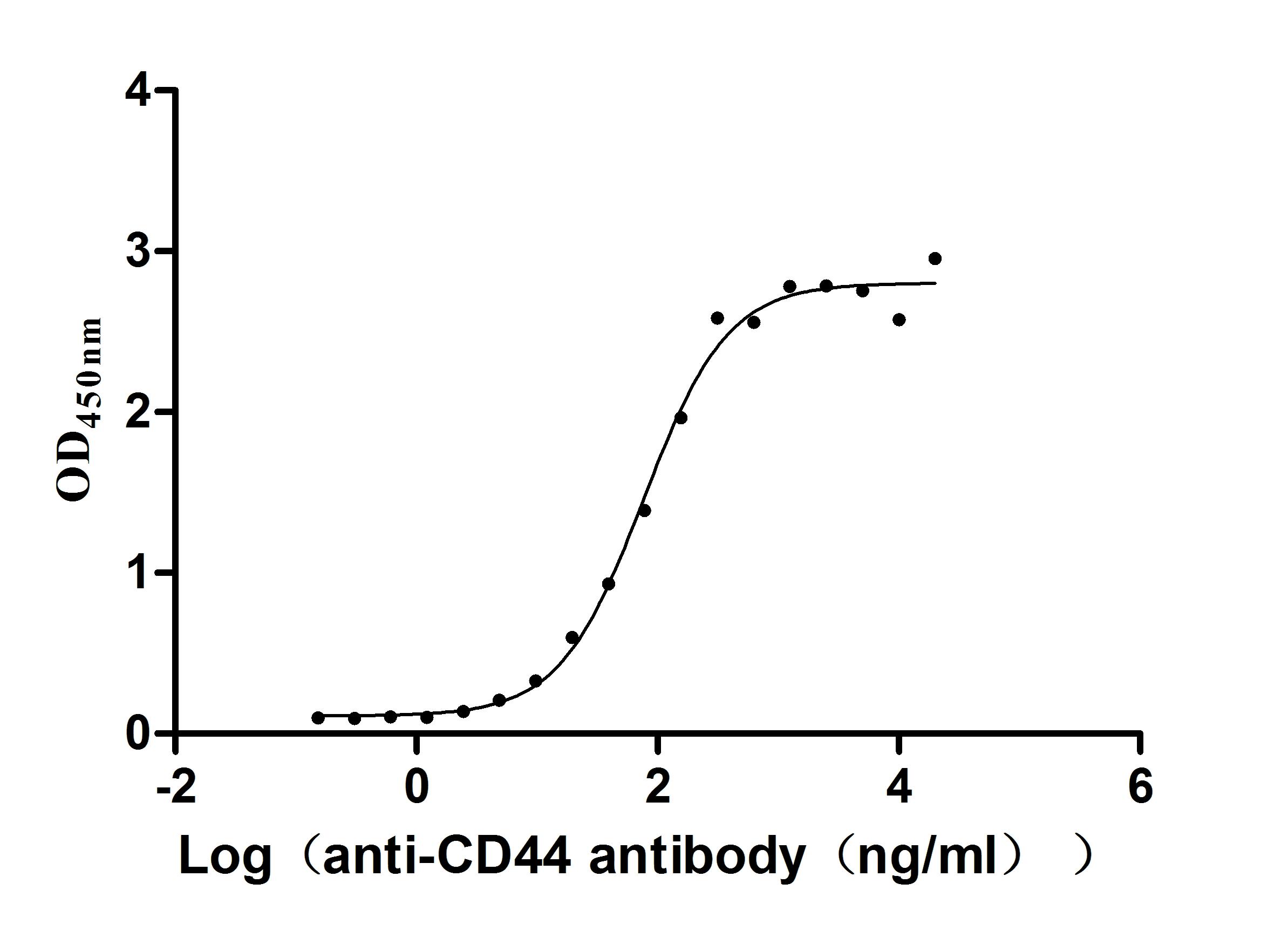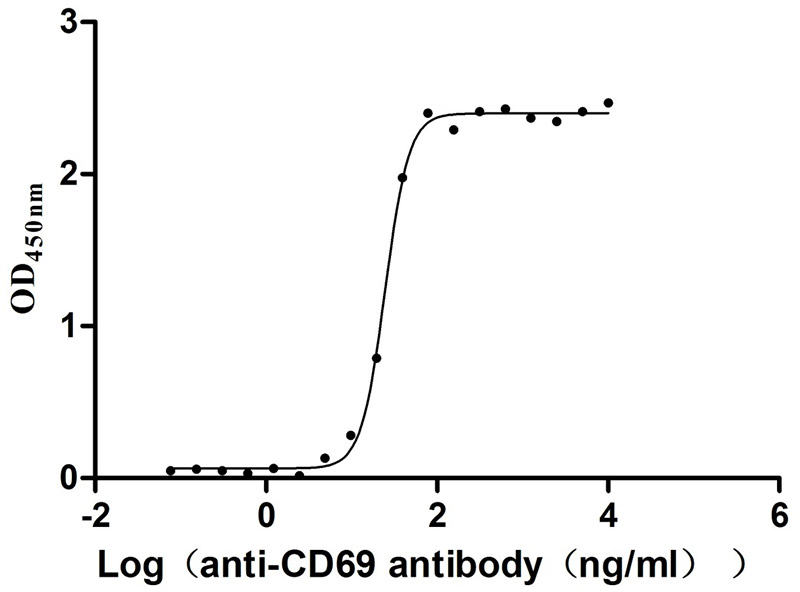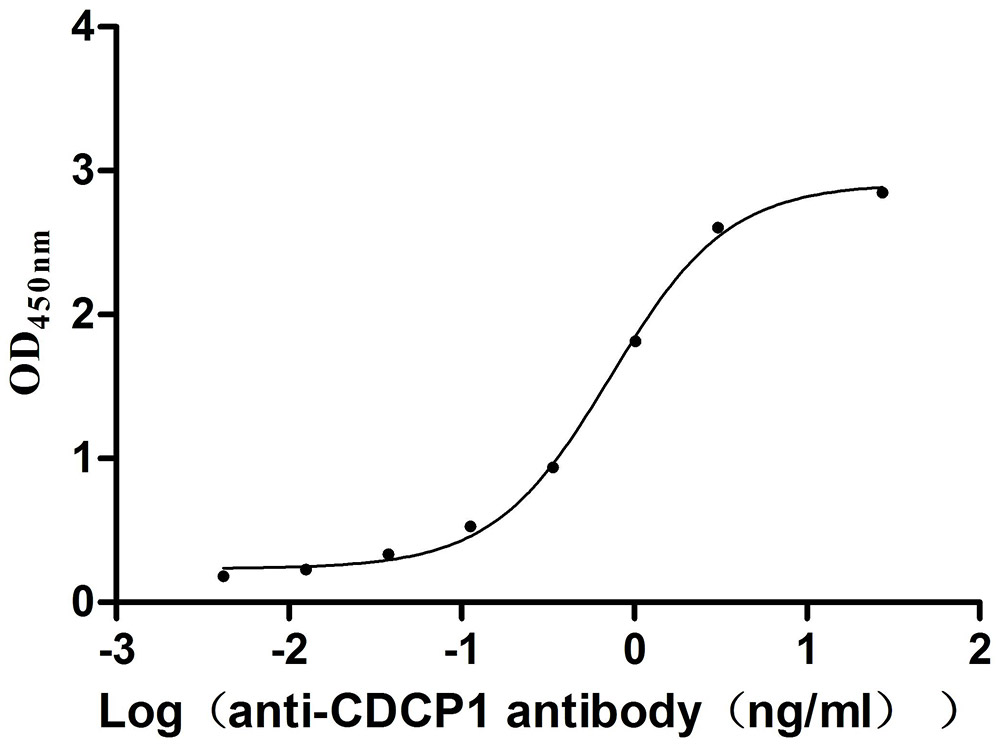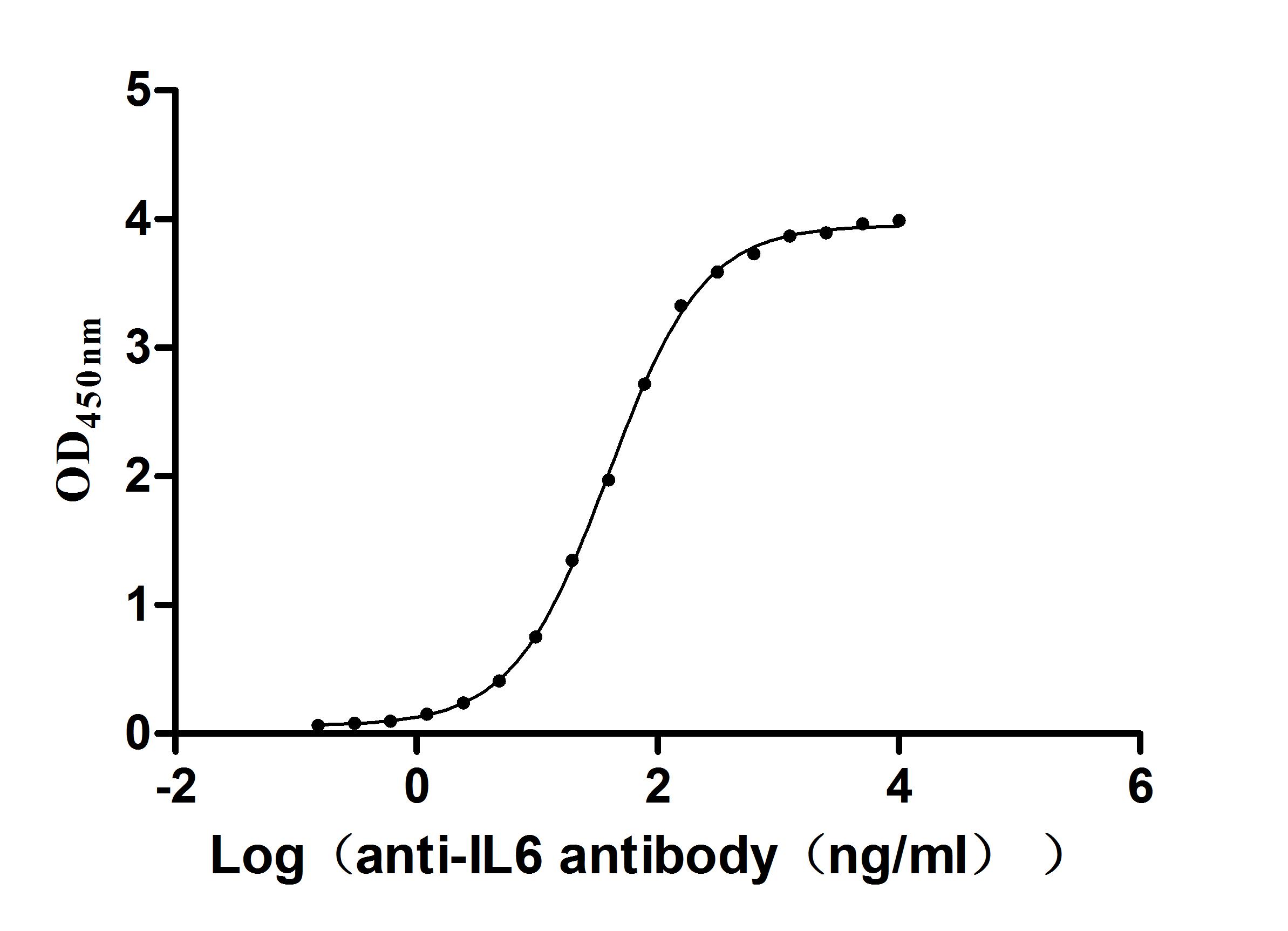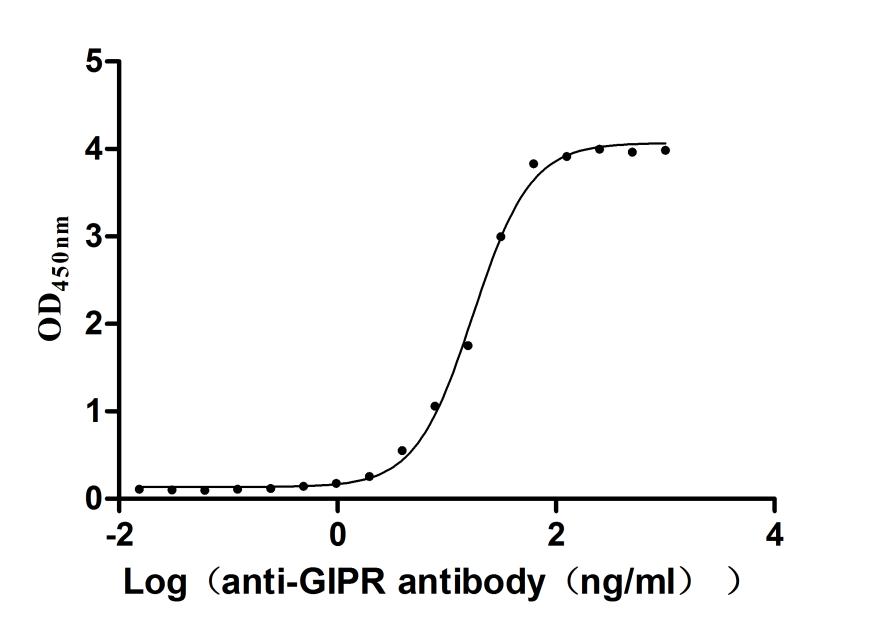Recombinant Rat Mitogen-activated protein kinase 8 (Mapk8)
-
中文名称:大鼠Mapk8重组蛋白
-
货号:CSB-YP013466RA
-
规格:
-
来源:Yeast
-
其他:
-
中文名称:大鼠Mapk8重组蛋白
-
货号:CSB-EP013466RA
-
规格:
-
来源:E.coli
-
其他:
-
中文名称:大鼠Mapk8重组蛋白
-
货号:CSB-EP013466RA-B
-
规格:
-
来源:E.coli
-
共轭:Avi-tag Biotinylated
E. coli biotin ligase (BirA) is highly specific in covalently attaching biotin to the 15 amino acid AviTag peptide. This recombinant protein was biotinylated in vivo by AviTag-BirA technology, which method is BriA catalyzes amide linkage between the biotin and the specific lysine of the AviTag.
-
其他:
-
中文名称:大鼠Mapk8重组蛋白
-
货号:CSB-BP013466RA
-
规格:
-
来源:Baculovirus
-
其他:
-
中文名称:大鼠Mapk8重组蛋白
-
货号:CSB-MP013466RA
-
规格:
-
来源:Mammalian cell
-
其他:
产品详情
-
纯度:>85% (SDS-PAGE)
-
基因名:
-
Uniprot No.:
-
别名:Mapk8; Jnk1; Prkm8; Mitogen-activated protein kinase 8; MAP kinase 8; MAPK 8; EC 2.7.11.24; SAPK gamma; Stress-activated protein kinase JNK1; c-Jun N-terminal kinase 1; p54 gamma
-
种属:Rattus norvegicus (Rat)
-
蛋白长度:Full length protein
-
表达区域:1-411
-
氨基酸序列MSRSKRDNNF YSVEIADSTF TVLKRYQNLK PIGSGAQGIV CAAYDAILER NVAIKKLSRP FQNQTHAKRA YRELVLMKCV NHKNIIGLLN VFTPQKSLEE FQDVYIVMEL MDANLCQVIQ MELDHERMSY LLYQMLCGIK HLHSAGIIHR DLKPSNIVVK SDCTLKILDF GLARTAGTSF MMTPYVVTRY YRAPEVILGM GYKENVDLWS VGCIMGEMVC LKILFPGRDY IDQWNKVIEQ LGTPCPEFMK KLQPTVRTYV ENRPKYAGYS FEKLFPDVLF PADSEHNKLK ASQARDLLSK MLVIDASKRI SVDEALQHPY INVWYDPSEA EAPPPKIPDK QLDEREHTIE EWKELIYKEV MDLEERTKNG VIRGQPSPLG AAVINGSQHP VSSPSVNDMS SMSTDPTLAS D
-
蛋白标签:Tag type will be determined during the manufacturing process.
The tag type will be determined during production process. If you have specified tag type, please tell us and we will develop the specified tag preferentially. -
产品提供形式:Lyophilized powder
Note: We will preferentially ship the format that we have in stock, however, if you have any special requirement for the format, please remark your requirement when placing the order, we will prepare according to your demand. -
复溶:We recommend that this vial be briefly centrifuged prior to opening to bring the contents to the bottom. Please reconstitute protein in deionized sterile water to a concentration of 0.1-1.0 mg/mL.We recommend to add 5-50% of glycerol (final concentration) and aliquot for long-term storage at -20℃/-80℃. Our default final concentration of glycerol is 50%. Customers could use it as reference.
-
储存条件:Store at -20°C/-80°C upon receipt, aliquoting is necessary for mutiple use. Avoid repeated freeze-thaw cycles.
-
保质期:The shelf life is related to many factors, storage state, buffer ingredients, storage temperature and the stability of the protein itself.
Generally, the shelf life of liquid form is 6 months at -20°C/-80°C. The shelf life of lyophilized form is 12 months at -20°C/-80°C. -
货期:Delivery time may differ from different purchasing way or location, please kindly consult your local distributors for specific delivery time.Note: All of our proteins are default shipped with normal blue ice packs, if you request to ship with dry ice, please communicate with us in advance and extra fees will be charged.
-
注意事项:Repeated freezing and thawing is not recommended. Store working aliquots at 4°C for up to one week.
-
Datasheet :Please contact us to get it.
靶点详情
-
功能:Serine/threonine-protein kinase involved in various processes such as cell proliferation, differentiation, migration, transformation and programmed cell death. Extracellular stimuli such as proinflammatory cytokines or physical stress stimulate the stress-activated protein kinase/c-Jun N-terminal kinase (SAP/JNK) signaling pathway. In this cascade, two dual specificity kinases MAP2K4/MKK4 and MAP2K7/MKK7 phosphorylate and activate MAPK8/JNK1. In turn, MAPK8/JNK1 phosphorylates a number of transcription factors, primarily components of AP-1 such ...显示更多
-
基因功能参考文献:
- Autophagy protects bone marrow mesenchymal stem cells from palmitate-induced apoptosis through the reactive oxygen speciesJNK/p38 MAPK signaling pathways. PMID: 29901107
- The JNK signaling pathway is involved in regulating trypsinogen activation in rat pancreatic AR42J cells. SP600125 is an ATPcompetitive, efficient, selective and reversible inhibitor of JNK. the results were verified by four sets of experiments and demonstrated that trypsinogen activation is mediated by the JNK signaling pathway in the pathogenesis of acute pancreatitis PMID: 29207022
- Ischemia/reperfusion-induced JNK phosphorylation was reduced by SP600125, indicating that JNK mediates the apoptosis pathways in rat skin. PMID: 27884327
- JNK1 activation plays a role in the biological link between depression and NASH. Sitagliptin significantly decreased expression of hepatic JNK1 in rat model of NAFLD with mild chronic stress. PMID: 27916420
- JNK1 mediates pancreatic beta apoptotic cell death associated with increased Myc expression in IL1-beta treated cells. PMID: 26962537
- Inhibition of JNK by hydrogen-rich saline showed beneficial effects on LPS-challenged rats, at least in part, by restoring cardiac fatty acid oxidation PMID: 26565704
- Data show that in vivo inhibition of c-jun N-terminal kinase (JNK) activation resulted in a significant and sustained decrease in apoptosis in the ganglion cell layer, the inner nuclear layer and the photoreceptor layer. PMID: 26427475
- JNK-dependent LMO7b phosphorylation is required for hypercapnia-mediated Na,K-ATPase endocytosis. PMID: 26370512
- spinal JNK activity is dependent on TNF and that both TNF and the JNK signalling pathways modulate pain-like behaviour induced by peripheral inflammation PMID: 24942612
- These findings indicate that CORM-3 pretreatment interferes with JNK/AP-1 signaling and suppresses LPS-induced upregulation of the proadhesive phenotype in hCMEC/D3. PMID: 25098198
- Quantitative proteomics reveals dynamic interaction of JNK with RNA transport granule proteins Sfpq and Nono during neuronal differentiation PMID: 25326457
- Nymphaea rubra ameliorates TNF-alpha-induced insulin resistance via suppression of c-Jun NH2-terminal kinase and nuclear factor-kappaB in the rat skeletal muscle cells. PMID: 25234391
- These findings demonstrate that mitochondrial JNK activation, rather than JNK mitochondrial localization, induces autophagy and apoptosis and exacerbates myocardial ischemia/reperfusion injury. PMID: 24859228
- JNK1 protects against glucolipotoxicity-mediated beta-cell apoptosis. PMID: 24475223
- identified NMI induction as a novel negative feedback mechanism that decreases IRE1alpha-dependent activation of JNK and apoptosis in cytokine-exposed beta cells PMID: 24936061
- Data suggest that, in skeletal muscle, mTORC1 (mechanistic target of rapamycin, complex 1)/JNK signaling coordinates site-specific phosphorylation of p70S6K1 (ribosomal protein S6 kinase polypeptide 1); mTORC1/mTORC2 play roles in inhibition of JNK. PMID: 24801387
- Analgesic effect of acupuncture is mediated via inhibition of JNK activation in astrocytes after spinal cord injury. PMID: 24040124
- JNK1 and c-Jun were shown to be major targets of DCA. PMID: 24421392
- Elevated homocysteine induced the apoptosis of bone marrow mesenchymal stem cells via reactive oxygen species-induced the activation of JNK signal. PMID: 23667638
- Rac-1 superactivation restores the GLUT4 response in muscle cells rendered insulin-resistant via JNK activation or ceramide delivery. PMID: 23640896
- All-trans retinoic acid suppressed the mRNA expression of JNK and AP-1, which inhibited proliferation and collagen production of hepatic stellate cells. PMID: 21181362
- In serum starved RGC-5 cells, upregulation of JNK1 and the nuclear translocation and activation of phospho-JNK implies its importance in normal tension glaucoma. PMID: 22775755
- JNK activation in the spinal cord is required in the maintenance of cancer-induced bone pain. PMID: 22681856
- Exercise could increase muscle responsiveness to insulin, improving the total JNK and p-JNK and mRNA expression. PMID: 21186629
- data provide initial proof-of-concept that the neuronal death target JNK may also participate in endogenous processes of neurovascular remodeling and recovery after cerebral ischemia. PMID: 22699892
- JNK1/2 activation is associated with endogenous NO in response to ischemic insult. PMID: 22088537
- Data show that bulbospinal neuron populations react differently to injury and that the cell body response of spared neurons is distinct from that of axotomized neurons since they can up-regulate c-Jun but not HSP27. PMID: 21132399
- c-Jun induction is independent of Egr during apoptosis induced by activity deprivation in cerebellar granule neurons. PMID: 22143198
- A novel JNK1-Hes-1 signaling pathway is identified that regulates GluR1 expression involved in synaptic function in cortical neurons. PMID: 22302822
- IL-1 beta-induced collagen synthesis may be mediated by cytoplasmic JNK and p38/AP-1 pathways. PMID: 22229265
- The level of JNK and c-Jun phosphorylation increases obviously in lungs of rats with paraquat poisoning. PMID: 19080378
- Phosphorylation of JNK is closely related to asthma airway remodeling. Glucocorticoids can inhibit phosphorylation of JNK. PMID: 20450637
- Data suggest that K252a induced neuroprotection against ischemia/reperfusion in rat hippocampal CA1 subregion via inhibiting the mitochondrial Bax apoptosis pathway induced by JNK/MLK3 activation. PMID: 21726169
- Dexmedetomidine-induced contraction involves a JNK- and p38 MAPK-mediated pathway downstream of alpha-adrenoceptor stimulation in rat aortic smooth muscle. PMID: 21488184
- JNK MAPK is involved in the expression of endothelial cell adhesion molecules in thermal injury. PMID: 21263381
- phosphorylation of ATF-2 by JNK is associated with retinal ganglion cell death after axon damage. PMID: 21300140
- Data show that neonatal overweight increased hypoxia-ischemia (HI)-induced neuronal apoptosis, microglial activation and BBB damage, and aggravated HI brain damage in rat pups through JNK hyperactivation. PMID: 21518436
- Peptidoglycan-induced IL-6 expression is mediated by AP-1 activation through the TLR2 and JNK/c-Jun pathways in microglia. PMID: 20945380
- Data suggest that inhibition of spinal c-Jun N-terminal kinase activation may be involved in the analgesic effects of ketamine on spinal nerve ligation-induced neuropathic pain. PMID: 21255465
- Ischemic postconditioning can inhibit phosphorylation of JNK MAPK, which attenuates cardiocyte apoptosis. PMID: 20014487
- PI3K/Akt had intimate association with JNK and ERK activation in Tamoxifen-induced apoptosis. PMID: 21042752
- Expression of P-c-Jun in rats is increased during asthma airway remodeling. PMID: 19099816
- PI3-kinase, Rac1, and JNK were essential for bFGF-induced fibroblast migration PMID: 20808927
- HNE may not be just a passive biomarker of hepatic oxidant stress but rather an active mediator of hepatocellular injury through effects on JNK signaling PMID: 20501438
- Danshensu showed an obvious inhibitory effect on JNK phosphorylation in hepatic stellate cells induced by interleukin-1beta. PMID: 19460707
- Data show that Cdk5 as a major regulator of the JNK cascade, and suggest that Cdk5 is a preferable therapeutic target for Alzheimer disease relative to JNK and c-Jun. PMID: 19776350
- Total jun N-terminal kinase (JNK) and phosphorylated JNK are reduced following undernutrition in the cerebral cortex of newborn rats. PMID: 19840222
- There is cross-talk between the calcineurin and JNK pathway in controlling renovascular hypertension-induced cardiac hypertrophy. PMID: 18957384
- results demonstrate a significant role for JNK1 in A beta-mediated induction of the apoptotic cascade in cultured cortical neurons PMID: 12534344
- investigated the roles of G alphai, G alphaq, G alpha12/G alpha13, and G betagamma subunits on endothelin-1-induced JNK and ERK activation in cultured rat neonatal myocytes; results clearly demonstrate that differential pathways activate JNK and ERK PMID: 12606754
收起更多
-
亚细胞定位:Cytoplasm. Nucleus. Cell junction, synapse.
-
蛋白家族:Protein kinase superfamily, CMGC Ser/Thr protein kinase family, MAP kinase subfamily
-
数据库链接:
KEGG: rno:116554
UniGene: Rn.4090


